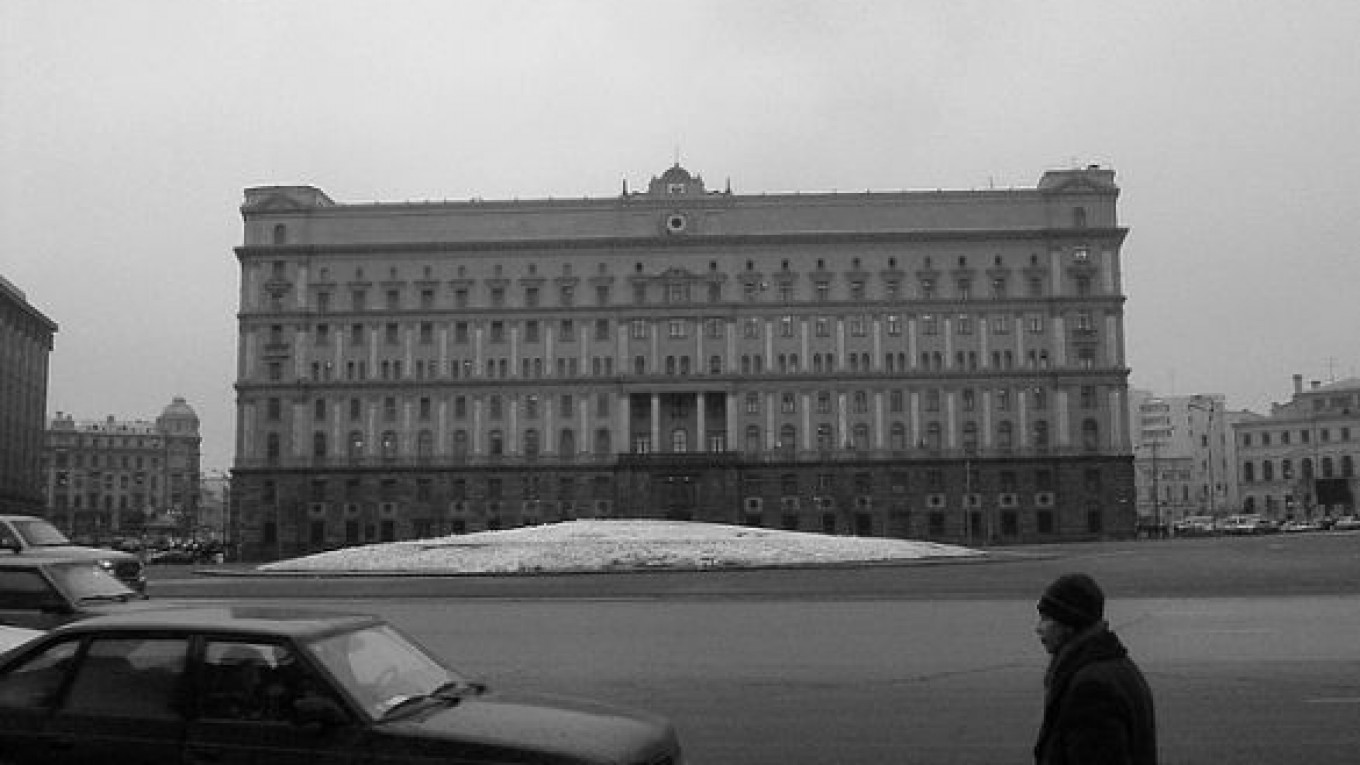A draft government order may allow the Federal Security Service, or FSB, to access all Internet communications without court permission, a policy that some observers say would violate the Constitution and could spur attempts to gather information for blackmailing people.
The draft document, written by the Communications and Press Ministry and approved by the FSB, would oblige Internet providers to store their web traffic for at least 12 hours and provide security officers “direct access” to these records, Kommersant reported Monday.
The FSB would get information about telephone numbers, IP addresses, account names and e-mail addresses of users of social networking sites, the newspaper report said, citing unidentified sources in the telecoms market.
If approved by the Justice Ministry, the order is expected to take effect before the year's end, while Internet providers would be obliged to install special equipment for storage of Internet traffic on their networks by July 1, 2014, the report said.
Repeated telephone calls and an inquiry submitted by email to the Communications and Press Ministry requesting confirmation of the document's details went unanswered Monday .
Kirill Kabanov, head of the National Anti-Corruption Committee and a former FSB officer, warned that such a policy could lead to abuses of power.
“Certain security officers will use private information for commercial purposes, like to blackmail someone, and not in the interests of the state but in their personal interests,” Kabanov told The Moscow Times.
He also argued that such measures may not be effective for security purposes in the long run. “Total control breeds more sophisticated methods to avoid it,” Kabanov said.
The Kommersant report said that VimpelCom, one of Russia's largest Internet providers, wrote a letter to the Communications and Press Ministry saying that the order “violated rights guaranteed by the Constitution,” in particular the right to keep private letters, telephone conversations and other messages secret.
A spokeswoman at VimpelCom's Moscow office said by phone that her company had decided not to comment on the issue to the media. She refused to explain the reason.
Article 23 of the Constitution allows law enforcement agencies to access private letters and telephone calls only with a court order, while Article 24 bans the collection, storage and usage of information about someone's private life without that person's consent.
VimpelCom alleged in its letter that the ministry's order also would violate the 1995 law “On Investigative Activities,” which does not oblige Internet providers to buy and use special equipment for investigative activities.
Current rules for receiving a telecommunications license oblige providers to give access for the FSB to install its equipment on the provider's networks, said Ksenia Tolman, commercial director at Business Svyaz Holding, a Moscow-based telecoms provider.
Existing equipment allows security officers to get information about IP addresses and telephone numbers of users any time without the provider's knowledge and wiretap telephone conversations and Internet messages in real time, Tolman said.
“Currently, we do not store the content. This most likely will be the difference,” she said.
Tolman predicted that most telecoms providers would be “technically unprepared” to install the information storage equipment, as it “requires huge infusions of money.”
Major Internet provider Akado put a preliminary estimate of the cost of the information storage equipment at between 70 and 200 million rubles ($2.2 to $6.3 million).
Given the high cost, it would be “fair” to spend money from the federal budget or regional budgets on installation and usage of the new equipment, Akado said in an e-mailed statement.
“But if the expenses of providers on installation and usage of the system are not compensated, they could fall onto subscribers, which will lead to a rise in fees,” the company said.
Contact the author at [email protected]
A Message from The Moscow Times:
Dear readers,
We are facing unprecedented challenges. Russia's Prosecutor General's Office has designated The Moscow Times as an "undesirable" organization, criminalizing our work and putting our staff at risk of prosecution. This follows our earlier unjust labeling as a "foreign agent."
These actions are direct attempts to silence independent journalism in Russia. The authorities claim our work "discredits the decisions of the Russian leadership." We see things differently: we strive to provide accurate, unbiased reporting on Russia.
We, the journalists of The Moscow Times, refuse to be silenced. But to continue our work, we need your help.
Your support, no matter how small, makes a world of difference. If you can, please support us monthly starting from just $2. It's quick to set up, and every contribution makes a significant impact.
By supporting The Moscow Times, you're defending open, independent journalism in the face of repression. Thank you for standing with us.
Remind me later.






